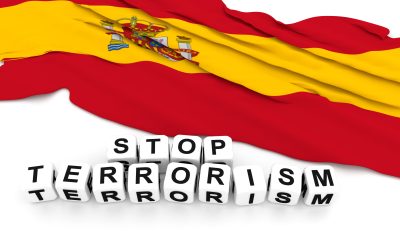Safety & Emergency
Terrorist Protection in Spain
Strategies and Measures
Spain, like many other countries, faces the ongoing threat of terrorism.
The nation has developed a comprehensive and multi-faceted approach to counterterrorism, involving various government agencies, legal frameworks, and international cooperation.
This article explores how Spain works to protect its citizens and infrastructure from terrorist threats.
Historical Context
Spain has a long history of dealing with terrorism, particularly from domestic groups like ETA (Euskadi Ta Askatasuna), a Basque separatist organization.
The threat landscape has evolved, with recent concerns focusing on jihadist terrorism, especially following high-profile attacks in Madrid (2004) and Barcelona (2017).
Government Agencies Involved
- National Intelligence Center (CNI):
- The CNI is Spain’s primary intelligence agency, responsible for gathering and analyzing information related to national security, including counterterrorism.
It works both domestically and internationally to preempt and respond to terrorist threats.
- The CNI is Spain’s primary intelligence agency, responsible for gathering and analyzing information related to national security, including counterterrorism.
- National Police (Policía Nacional):
- The National Police handle counterterrorism operations within urban areas.
They focus on preventing attacks, investigating terrorist networks, and maintaining public order.
- The National Police handle counterterrorism operations within urban areas.
- Guardia Civil:
- The Guardia Civil operates primarily in rural areas and on highways.
It plays a crucial role in counterterrorism, border control, and protecting critical infrastructure.
- The Guardia Civil operates primarily in rural areas and on highways.
- Regional Police Forces:
- In regions with autonomous police forces, such as Catalonia (Mossos d’Esquadra) and the Basque Country (Ertzaintza),
these agencies also have counterterrorism responsibilities. They coordinate closely with national agencies to ensure a unified response.
- In regions with autonomous police forces, such as Catalonia (Mossos d’Esquadra) and the Basque Country (Ertzaintza),
Legal Framework and Policies
- Anti-Terrorism Legislation:
- Spain has enacted robust anti-terrorism laws that allow for the detention and prosecution of individuals involved in terrorist activities.
These laws enable authorities to act swiftly and decisively against potential threats.
- Spain has enacted robust anti-terrorism laws that allow for the detention and prosecution of individuals involved in terrorist activities.
- Penal Code Amendments:
- Recent amendments to the Penal Code have enhanced penalties for terrorism-related crimes, including recruitment, financing, and propaganda.
- National Counter-Terrorism Strategy:
- Spain’s National Counter-Terrorism Strategy outlines the country’s approach to preventing and responding to terrorist threats.
It emphasizes intelligence sharing, public awareness, and resilience-building.Prevention and Intelligence
- Spain’s National Counter-Terrorism Strategy outlines the country’s approach to preventing and responding to terrorist threats.
- Surveillance and Monitoring:
- Advanced surveillance technologies, including CCTV, online monitoring, and data analysis tools, are employed to detect and prevent terrorist activities.
Authorities monitor communications, financial transactions, and social media to identify potential threats.
- Advanced surveillance technologies, including CCTV, online monitoring, and data analysis tools, are employed to detect and prevent terrorist activities.
- Community Policing and Outreach:
- Engaging with local communities is a key strategy to prevent radicalization.
Police work with community leaders, schools, and religious institutions to build trust and gather intelligence.
- Engaging with local communities is a key strategy to prevent radicalization.
- Counter-Radicalization Programs:
- Programs aimed at preventing radicalization focus on education, social integration, and counter-narratives.
These initiatives target at-risk individuals and groups, offering support and alternatives to extremist ideologies.
- Programs aimed at preventing radicalization focus on education, social integration, and counter-narratives.
Response and Crisis Management
- Rapid Response Units:
- Specialized units, such as the National Police’s GEO (Special Operations Group) and the Guardia Civil’s GAR (Rapid Action Group),
are trained to respond quickly to terrorist incidents.
These units are equipped to handle hostage situations, bomb threats, and armed attacks.
- Specialized units, such as the National Police’s GEO (Special Operations Group) and the Guardia Civil’s GAR (Rapid Action Group),
- Emergency Preparedness:
- Spain has developed comprehensive emergency response plans to coordinate actions during a terrorist attack.
Regular drills and simulations are conducted to ensure readiness across all relevant agencies.
- Spain has developed comprehensive emergency response plans to coordinate actions during a terrorist attack.
Critical Infrastructure Protection:
- Measures are in place to safeguard critical infrastructure, including transportation networks, energy facilities, and public buildings.
Enhanced security protocols and access controls reduce vulnerabilities.
Global Partnerships:
- Spain collaborates with international partners, including the United States and other NATO allies, to combat global terrorism.
Joint training exercises, intelligence sharing, and coordinated operations enhance collective security.
United Nations Initiatives:
- Spain supports UN counterterrorism initiatives and complies with international conventions and protocols aimed at preventing terrorism financing ,
and promoting global security standards.
Public Awareness and Resilience
- Public Information Campaigns:
- Authorities conduct public awareness campaigns to educate citizens on how to recognize and report suspicious activities.
These campaigns aim to create a vigilant and informed public.
- Authorities conduct public awareness campaigns to educate citizens on how to recognize and report suspicious activities.
- Resilience Building:
- Efforts to build societal resilience include strengthening emergency services, improving crisis communication, and fostering a culture of preparedness.
Community resilience programs encourage proactive participation in safety measures.
- Efforts to build societal resilience include strengthening emergency services, improving crisis communication, and fostering a culture of preparedness.
